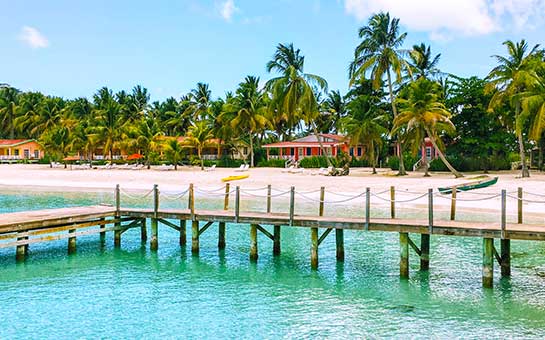Haiti is a tropical island destination that shares its border with the Dominican Republic. The country has suffered environmental degradation, natural disasters, and poverty in the past. Even after the devastating Port au Prince earthquake that shook the country in 2010, Haiti carries on!
The country is full of landmarks from the early 19th century to recent UNESCO World Heritage Sites. Haiti has a unique Caribbean culture that makes it an intriguing destination. It is a land of impressive waterfalls, mountains, and beautiful beaches that are as close to paradise as it can get.
Haiti fuses cultural and historic elements like no other country. There are hundreds of things to do in this country that keep travelers coming back for more. But before you get here and start exploring, be sure to have travel medical insurance to protect your finances in case something goes amiss.
Haiti Travel Medical Insurance for International Travelers - FAQs
Public health infrastructure is very weak in Haiti, and its inability to deal with pre-existing diseases worsens the situation. Hospitals have been the worst affected due to earthquakes. Some areas in Haiti are inaccessible to ambulances, and in case of serious injury or illness, medical evacuation or repatriation remains the only option. Buy travel medical insurance, as the cost of medical treatment or evacuation may cost you a lot in Haiti.
Do I need travel medical insurance for Haiti?
It is not mandatory to buy travel medical insurance for Haiti. But, it would be a grave mistake to enter the country that is infamous for street crime, violent crimes, and serious diseases without any insurance coverage. You can buy the insurance policy in advance to make sure you get the right coverage and the best deal, but make sure that it provides coverage for medical evacuations.
Why buy travel medical insurance for Haiti?
Many hospitals in Haiti have decreased their activities due to the lack of medical supplies and medical-surgical consumables. The healthcare system is deeply flawed and is struggling to provide basic services to the locals. Even the expensive private hospitals provide sub-standard medical treatment quality despite working in tandem with the Center for Disease Control and Prevention (CDC). Buy travel medical insurance for Haiti to mitigate the expensive costs for treatment and evacuation.
Things to Do for Travelers in Haiti
- Tour Citadelle Laferriere: The most successful slave revolt in the New World is a part of Haiti’s rich history. This vast fort was made atop the Pic Laferriere hill after Haitian revolt leader Jean-Jacques Dessalines freed the nation. This sturdy construction is a UNESCO World Heritage Site. Visitors are treated with magnificent scenery and a tour of the defensive works in the fort.
- Visit Jacmel, The Unique City: The city of Jacmel was founded in 1698 and is a time capsule from the early 20th century. Urban architecture and impressive mansions make this city unique. Most of the buildings have been turned into art galleries and workshops by the locals. Be a part of the annual Carnival in January and February, which attracts thousands of international travelers every year.
- Explore Sans Souci Palace: Haiti’s first king, Henri Christophe, built the first elaborate palace in 1813 in Milot. The palace was built as a symbol of black power and was inspired by European design. Haiti’s past glory and its history can be relived by visiting the ruins of the palace that remains.
- Venture through Pic Macaya National Park: The national park of Haiti is named after the mountain Pic Macaya, which reaches a height of 7,700 feet (almost 2,350 meters). This biosphere reserve covers more than 8,000 hectares of the southwest part of the country. It houses the world’s largest population of endemic and endangered species of flora and fauna.
- Rum Tasting in Barbancourt Rum Distillery: The double-distilled Barbancourt Rum was founded in Port au Prince in 1862 and is one of Haiti’s oldest businesses. The world-famous rum is made from local sugarcanes that grow in an estate 10 miles outside the city. Visitors can taste a wide variety of premium rum for bargained prices here.
Travel Risks for International Travelers in Haiti
- Road Safety: Driving around the country at night is considered very dangerous, as there are very few street lights. The drivers are unpredictable, tend to over-speed, and are usually intoxicated. Do not stop on dark streets to help a stranger; they might be a distraction for an assault or armed carjacking.
- Cholera: Haiti’s first-ever case of cholera was confirmed in 2010. The country has ever since been struggling with the water-borne disease. Water and sanitation are a big concern in Haiti’s inability to deal with cholera. The local water should be considered contaminated unless and until boiled or chemically treated.
- Other Diseases: Mosquito-borne diseases like malaria, dengue, and chikungunya are common in all the cities. Lymphatic filariasis, rabies, tuberculosis, and other infections are also prolific in the island country.
Before You Travel to Haiti – Do This
- Pack insect repellent to prevent yourself from mosquito bites.
- Consult a doctor and get a clearance certificate showing that you don’t have any symptoms of tuberculosis.

